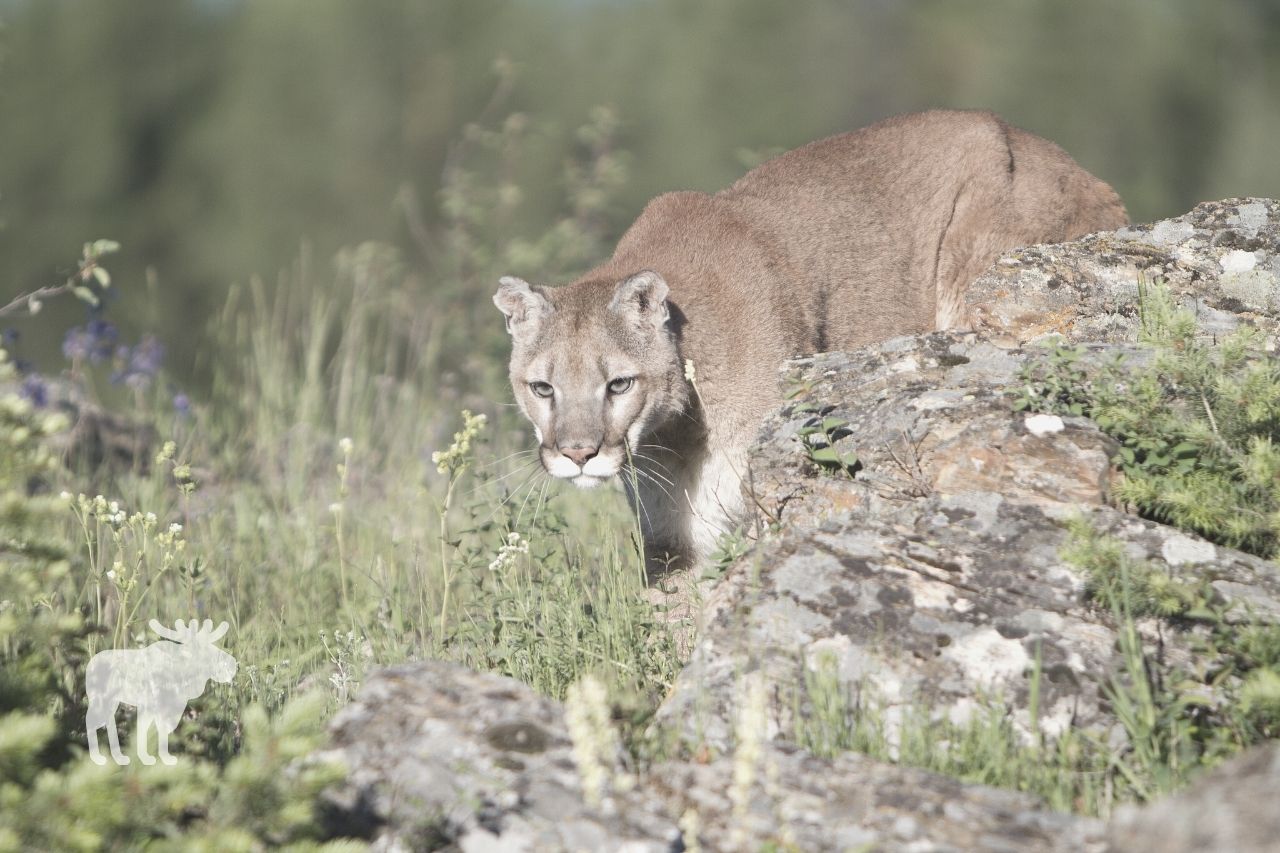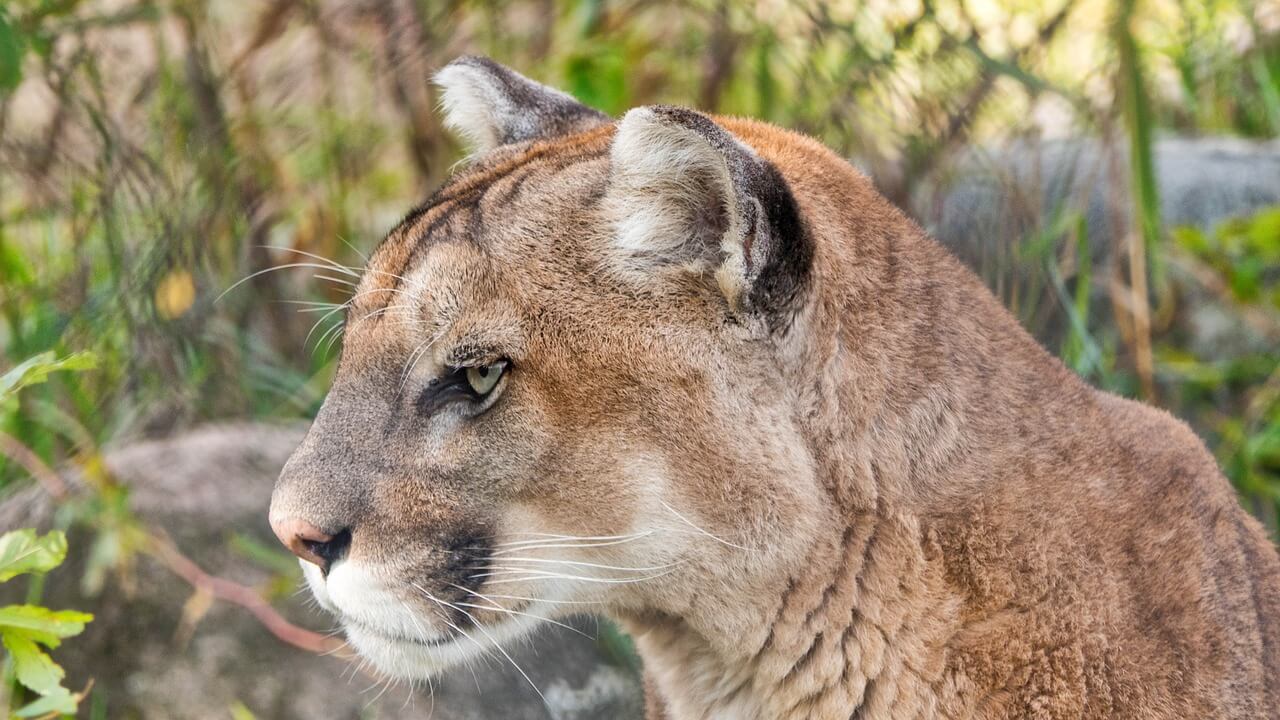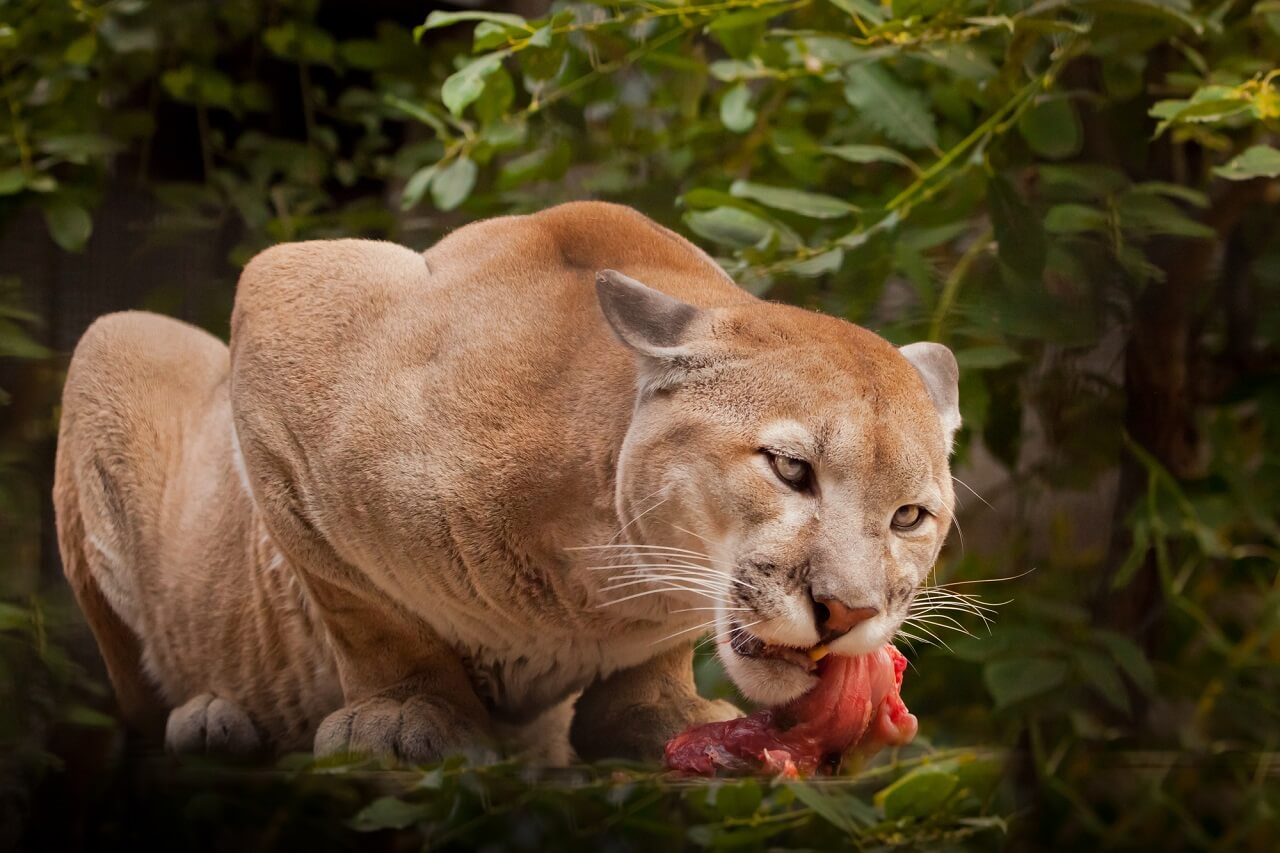You may already know that cougars live in many different regions throughout the Americas, but do you know just how expansive their range really is? Cougars can live in every type of climate, from desert areas to rainforests to frozen wastelands. So, how does a cougar adapt to its environment? What does it need to survive, and how does it protect itself? In this article, we’ll answer all of these questions and more.
What You'll Learn Today
Where Do Cougars Live?

Cougars have an incredibly wide range. They are only found in the Americas, but they inhabit many different environments from the northern reaches of Canada all the way to southern Chile.
In North America, cougars are mostly found in the western United States and Canada. An isolated subspecies of cougar, known as the Florida panther, lives in the Everglades region of Florida.
Cougars used to live throughout North America, but predator extermination efforts during the early 1900s forced them farther and farther west.
Today, isolated cougars are sometimes spotted in central and eastern regions, as young male cougars in particular have a tendency to roam far from their birth place in search of new territory.
Cougars can be found throughout central and South America. They can live in a wide range of climates including mountains, grasslands, forests, and deserts, as well as tropical and subtropical regions.
How Do Cougars Survive in Their Environment?

Since cougars are so widely distributed throughout the Americas, you may wonder how they can survive and even thrive in so many different places. What is it about these big cats that allows them to adjust to such a variety of environments and climates?
There are several ways in which cougars are highly adaptable and resilient. Some of these include:
- Cougars can tolerate a wide range of temperatures and moisture levels. Being warm-blooded mammals, cougars adjust well to both extremely hot and extremely cold weather, as well as everything from desert to rainforest rainfall amounts.
- Cougars are able to cover a large amount of ground in a day, so they can roam around to find the things they need. Since they are not limited to one small area, they don’t depend on having ideal living conditions at all times.
- Cougars are strong and capable of fighting for what they need. Their excellent physical strength gives them an edge both when fighting with other animals and battling environmental elements.
- Cougars can grow thicker fur during cold weather and shed the outer coat when it’s warm. This allows them to adjust to changing weather conditions as well as adapt to new and diverse climates.
- Cougars can and will eat any form of meat they can find. As opportunistic eaters, cougars aren’t picky and will eat anything that is plentiful in their particular region, including insects.
What Does a Cougar Need to Survive?
As you may imagine by now, cougars don’t require a whole lot. Still, every animal has at least a few basic things it needs to survive, and the cougar is no different.
Regardless of where they live, cougars need a plentiful source of food. They will eat almost any kind of meat, but they need enough of it on an ongoing basis to be able to survive.
On average, cougars eat 8 to 10 pounds of meat a day, with some eating up to 20 pounds at once. They can go for a few days up to a week or more without food, but the longer they do without, the more malnourished they become.
Cougars also need a source of water, as they don’t get enough of it from their food alone. Cougars that live in desert regions have adapted to needing less water, but they cannot go without it entirely.
While not entirely necessary for survival, cougars prefer regions with plenty of trees, boulders, or tall grasses where they can hide and stalk their prey. That said, a lack of cover won’t necessarily keep them out of an area, as some groups of cougars can also be found in more open areas.
What Are Cougars’ Predators?

Cougars are predators themselves; they don’t have any natural predators, though they often fight with other predatory animals over prey and territory. Sometimes cougars may be badly injured or killed when fighting other predators, but they are not generally hunted for meat.
The interesting exception to this rule is that humans sometimes hunt and eat cougars. In many states, it’s legal to hunt cougars for sport and food, though depending on the state, there are almost always laws and regulations governing this practice.
According to Western Wildlife, adult male cougars may sometimes prey on cougar kittens. This is one reason why the vulnerable baby cougars have a spotted coat – to conceal them from predators, including other cougars.
How Do Cougars Protect Themselves?
Despite their status as strong predators, cougars don’t typically like to flaunt their strength for all to see. More often, they prefer to stay in the shadows, hiding in rocky outcroppings or underbrush.
Though there are rare instances of cougars confronting and attacking humans, cougars usually try to stay out of sight whenever they detect any sort of threat. If hiding isn’t an option though, they won’t hesitate to protect themselves or their young by fighting.
Check out this video of a mother cougar fighting a grizzly bear to protect her cubs:
Conclusion
Cougars live in a wide variety of climates throughout North and South America. They are strong, highly adaptable creatures that can adjust to almost any environment.
They are quick and strong. That’s why they can be the rulers anywhere they live.
I want a pet cougar I think maybe, but I’m not really a cat person so maybe a timber wolf would suit me better no clue